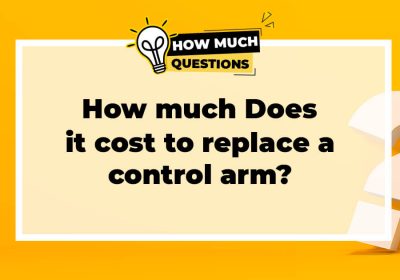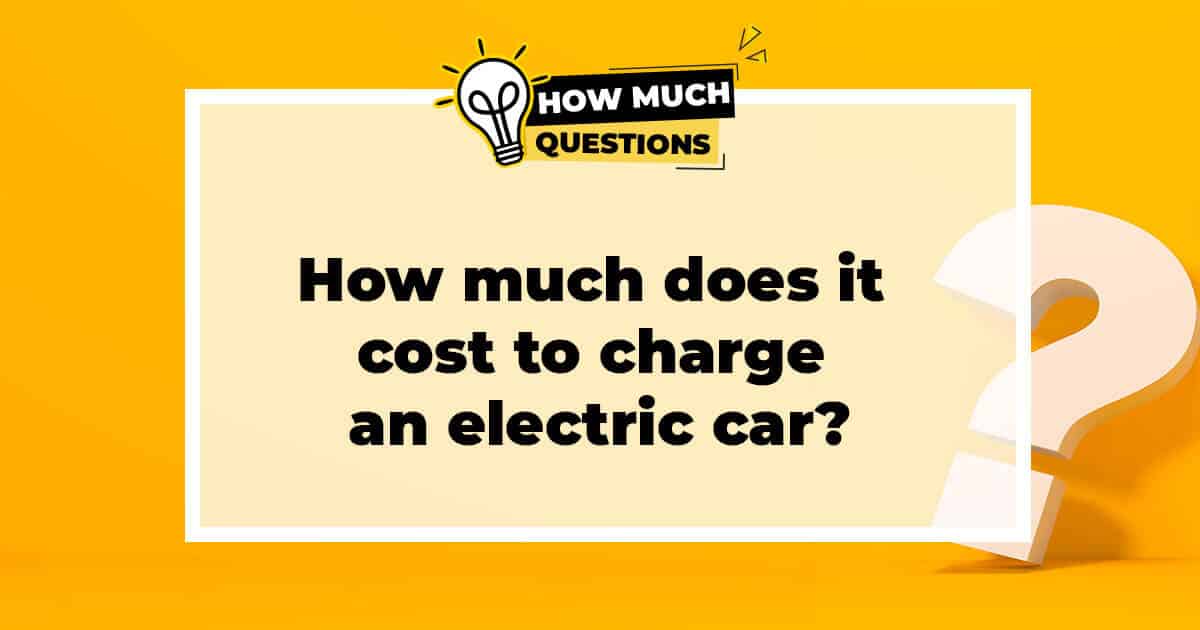
How Much Does It Really Cost to Charge an Electric Car?
Discover the intricacies of electric car charging costs. From factors influencing the price to cost-saving tips, we provide a comprehensive guide to navigating this electric revolution.

Introduction
Electric vehicles (EVs) have surged in popularity, offering a sustainable alternative to traditional gasoline-powered cars. One of the most common questions prospective EV owners ask is, "how much does it cost to charge an electric car?" In this guide, we'll explore the various factors that influence charging costs and provide actionable insights to help you navigate the world of EV charging.
How Much Does It Cost to Charge an Electric Car?
The cost to charge an electric car varies based on several factors:
- Electricity Rates: On average, residential electricity rates in the U.S. are about $0.13 per kWh. However, this can fluctuate depending on your location and time of use.
- Car Battery Capacity: Electric vehicles (EVs) have different battery sizes. For instance, a car with a 60 kWh battery will cost around $7.80 to charge from empty to full at the average rate.
- Charging Station Type: Home chargers (Level 1 and Level 2) are generally cheaper than fast-charging stations (Level 3). Public charging stations may also have varying rates.
- Charging Efficiency: Not all the electricity used during charging goes into the battery. Some is lost to inefficiency, which can affect the cost.
- Incentives and Discounts: Some regions offer discounted rates for EV charging during off-peak hours or provide incentives for EV owners.
In summary, while the exact cost can vary, charging an electric car is often cheaper than refueling a gasoline vehicle. Always check local rates and consider your vehicle's specifications to get a precise estimate.
Factors Influencing Cost
Home Charging vs. Public Stations
Charging at home can be more cost-effective, especially if you have solar panels. However, public charging stations, especially fast-charging ones, might have higher rates.
Charging Speed and Equipment
Different charging levels, from Level 1 to Level 3, have varying costs. The equipment you choose also plays a role in the overall expense.
Electricity Rates
Your local electricity rates, which can vary based on time-of-use pricing, significantly impact the cost of charging an EV.
Vehicle Battery Capacity
Larger batteries require more electricity to charge, leading to higher costs. However, they also offer longer driving ranges.
Pre-Purchase Considerations
Understanding Your Driving Needs
Evaluate how often and how far you drive. If you're a city commuter, a smaller battery might suffice.
Home Charging Infrastructure
Consider the costs of installing a home charging station. While it's an upfront investment, it can lead to long-term savings.
Public Charging Availability
Research the availability and costs of public charging stations in your area. Some regions offer incentives or discounted rates.
Cost-Saving Tips
- Off-Peak Charging: Charge your EV during off-peak hours to benefit from lower electricity rates.
- Government Incentives: Look for federal or state incentives that offer rebates for home charging installations.
- Regular Maintenance: Ensure your EV's battery is in optimal condition to maximize efficiency.
Guidance for Optimal Choices
- Choose the Right Charging Level: For daily commuting, Level 2 charging might be the most efficient choice.
- Invest in a Quality Charging Station: While pricier, high-quality stations can offer faster charging and longer lifespans.
- Stay Updated: With the EV industry rapidly evolving, staying informed can help you capitalize on new cost-saving opportunities.
Conclusion
Charging an electric car involves various factors, from where you charge to the type of vehicle you own. By understanding these elements and making informed decisions, you can optimize your EV charging costs. Have more questions or insights? Share them in the comments below!
Disclaimer: This article is intended for informational purposes only. While every effort has been made to ensure accuracy, it's crucial to consult with professionals or conduct thorough research, especially when making decisions with potential legal implications.
Frequently Asked Questions (FAQ)
How is the cost of charging an electric vehicle determined at home?
The cost of charging an electric vehicle at home is primarily determined by the vehicle's energy efficiency and the prevailing electricity rates. These rates can vary significantly based on location and time of use. For instance, residential electricity rates in the U.S. average around $0.13 per kWh but can fluctuate.
What is the average cost per kWh for household electricity in the U.S.?
The United States Energy Information Administration reports that the average U.S. household pays about 16 cents per kWh. This rate is essential in calculating the cost of charging an electric car, as it directly impacts the overall expense.
How do state-specific charging prices affect the cost?
Charging costs can vary by state due to differences in electricity rates. For example, the average price to charge a 60-kilowatt-hour Tesla Model 3 at home might differ from one state to another. It's essential to consider local rates for a precise estimate.
How much does it cost to charge an electric car with a 65-kWh battery?
Charging an electric car with a 65-kWh battery at home using a Level 2 charger costs approximately $11, assuming electricity costs $0.17 per kWh, which is close to the U.S. national average.
What is the range of costs to charge an electric vehicle?
The cost to charge an electric vehicle can vary widely. For instance, adding 100 miles of range to an EV can cost anywhere between $2.50 and $35, depending on various factors like electricity rates and vehicle efficiency.
What was the national residential average electricity rate in December 2021?
In December 2021, the national residential average electricity rate was reported to be 13.75 cents per kWh. This rate is a crucial factor in determining the cost of charging an electric car.
How do energy prices in August 2022 compare to previous rates?
In August 2022, the average cost of fully charging a Nissan Leaf was $6.38, providing 149 miles of range. It's essential to note that energy prices can vary from place to place and over time.
What are the average electricity costs in Texas as of March 2022?
As of March 2022, the average electricity cost in Texas was 12.8 cents per kW/h. This rate is essential for those using Level 2 charging stations in Texas, as it directly impacts the charging cost.
How do you calculate the cost to charge an EV with a fully depleted battery?
To calculate the cost to charge an EV with a fully depleted battery, multiply the required kWh to recharge the battery by the prevailing electricity rate. For example, if an EV requires 40 kWh to recharge and the rate is 18 cents per kWh, the cost would be $7.20.
Are there any apps for EV charging stations?
Yes, there are apps available for various charging stations that EV owners can use locally and for travel. These apps often provide information about charging costs, station locations, and other essential details.
If you want to know other articles similar to How Much Does It Really Cost to Charge an Electric Car? you can visit the category Automotive and Transportation.
- Introduction
- How Much Does It Cost to Charge an Electric Car?
- Factors Influencing Cost
- Pre-Purchase Considerations
- Cost-Saving Tips
- Guidance for Optimal Choices
- Conclusion
- Frequently Asked Questions (FAQ)
- How is the cost of charging an electric vehicle determined at home?
- What is the average cost per kWh for household electricity in the U.S.?
- How do state-specific charging prices affect the cost?
- How much does it cost to charge an electric car with a 65-kWh battery?
- What is the range of costs to charge an electric vehicle?
- What was the national residential average electricity rate in December 2021?
- How do energy prices in August 2022 compare to previous rates?
- What are the average electricity costs in Texas as of March 2022?
- How do you calculate the cost to charge an EV with a fully depleted battery?
- Are there any apps for EV charging stations?
Leave a Reply







You might be interested in